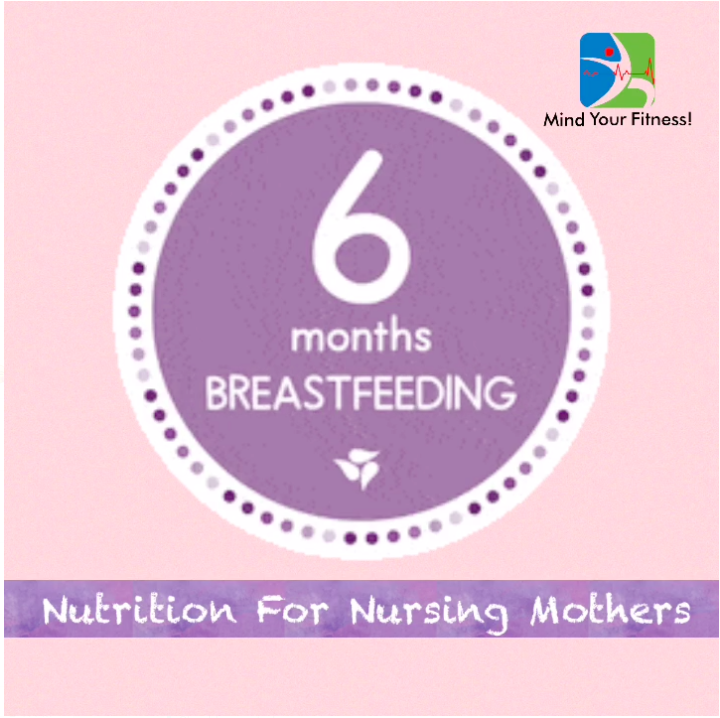
Lactation is a calorie burning activity. In the past, mothers were told not to lose too much weight too fast after pregnancy because it was thought that a rapid weight loss could possibly accelerate the release of toxins stored in a woman’s body fat. However, this has not been proven to be true. Nonetheless, slow, steady weight loss during the postpartum period is recommended to allow a healthy return to pre pregnancy weight with greater likelihood of keeping the weight off.
It depletes the mother of vital nutrients and some nutrients in breast milk depend on the mother’s diet. The table below sums it up!
| Nutrient | Milk Composition Affected by Mother’s Diet | Amount/Day | Food sources |
| Protein | Yes, breast milk is 60% whey | 70-75g | Eggs, dairy, meat, mercury free seafood |
| Omega-3 | Yes | 1.3g DHA | Mercury free fish or Supplements |
| Vitamin D | Yes | Based on blood levels, baby may need additional supplements | Sun exposure + supplements |
| Vitamin K | No | Baby may need additional supplements at birth | – |
| Iodine | Yes | Thyroid disorders in the mother need treatment + 290 mcg of iodide in the diet which generally requires supplementation of 150 mcg/day | Iodized salt, dairy foods, seafood |
| Zinc | No | Baby needs additional zinc after 6 months | – |
| Folic acid | Yes | 300 mcg | Green leafy vegetables, avocado, beans, nuts, animal foods |
| B12 | Yes | 1.5 mcg | Animal foods |
| Vitamin A | Yes | 1300 mcg retinol | Green leafy vegetables, yellow/orange vegetables |
| Other B complex vitamins/Vitamin C | Yes | Standard multivitamin supplement, baby needs additional vitamin C after 4 months | – |
| Iron | No | Baby needs additional iron after 4 months | – |
| Calcium | No | Mother should consume 1200 mg for her own needs | Dairy products |
| Selenium | Yes | 70 mcg | Seafood, seeds, nuts |
*Because of reports of clinical rickets, the AAP recommends that all breastfed infants receive 400 IU (10 mcg) of vitamin D as a daily supplement starting at birth
Dietary fat choices by the mother can increase or decrease specific fatty acids in her milk, but not the total amount of fat or cholesterol in the milk.
Although some nutrients in breast milk are not affected by the mother’s diet, breastfeeding mothers should be encouraged to meet their daily requirement through food and postnatal supplements especially of zinc (12 mg), iron (25 mg), calcium (1200 mg).
Miscellaneous
Water – drink to thirst as milk production depends upon adequate water intake.
Added sugar/jaggery/honey – limit to 1-2 tsp per day.
Artificial Sweeteners – As per studies, aspartame is not found in breast milk and sucralose levels are too low to affect the baby. Not many long term studies have been conducted on the use of stevia. The use of sweeteners depends on its effects on insulin levels and the gut bacteria (both mother and baby) and therefore should be used cautiously during lactation.
The use of sugar and sugar substitutes may depend on many other factors such medical conditions and the need for weight loss.
Caffeine – up to 2 cups per day of coffee/tea (< 300 mg/day).
Alcohol – avoid completely until 6 months.
Medications– as per doctors prescription, including contraceptives
Toxins – stay away from cigarette smoke, plastic, household cleaners, pesticides, hair/skincare products after clearance from the dermal.
Exercise – preferably after feeding or feed 90 minutes post.
Meditation – a calm mind is key to successful lactation as stress decreases milk production.
Sleep -Try and make up the deficit when possible, supportive family members are needed to achieve this.
Galactagogues -They are substances that help enhance milk production. Studies are limited. Some known galactagogues are fenugreek (methi) seeds, Shatavari, dill /fennel/garden cress seeds, ajwain, milk thistle, dink/gond. Use caution while using herbal supplements.
Probiotics– to treat certain conditions as per doctor’s advise.
A well fed infant will show the following (besides expected weight gain):
Healthy skin tone
Alert/responsive
Wet nappies (3-6/day in the 1st week and 6-8/day as it gets older)
Bright yellow, soft stools (frequency is variable, several times per day to once every few days)
– Shweta Bhatia, Registered Dieteitan, Mind Your Fitness!




